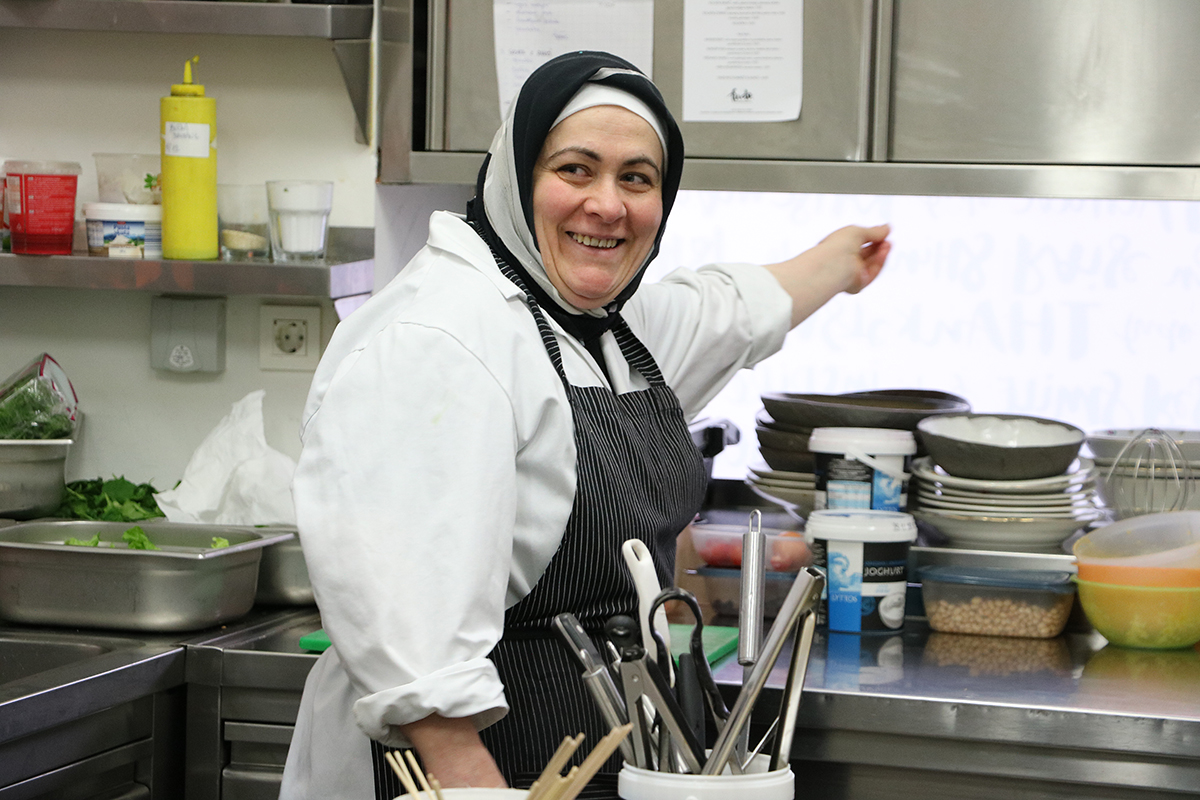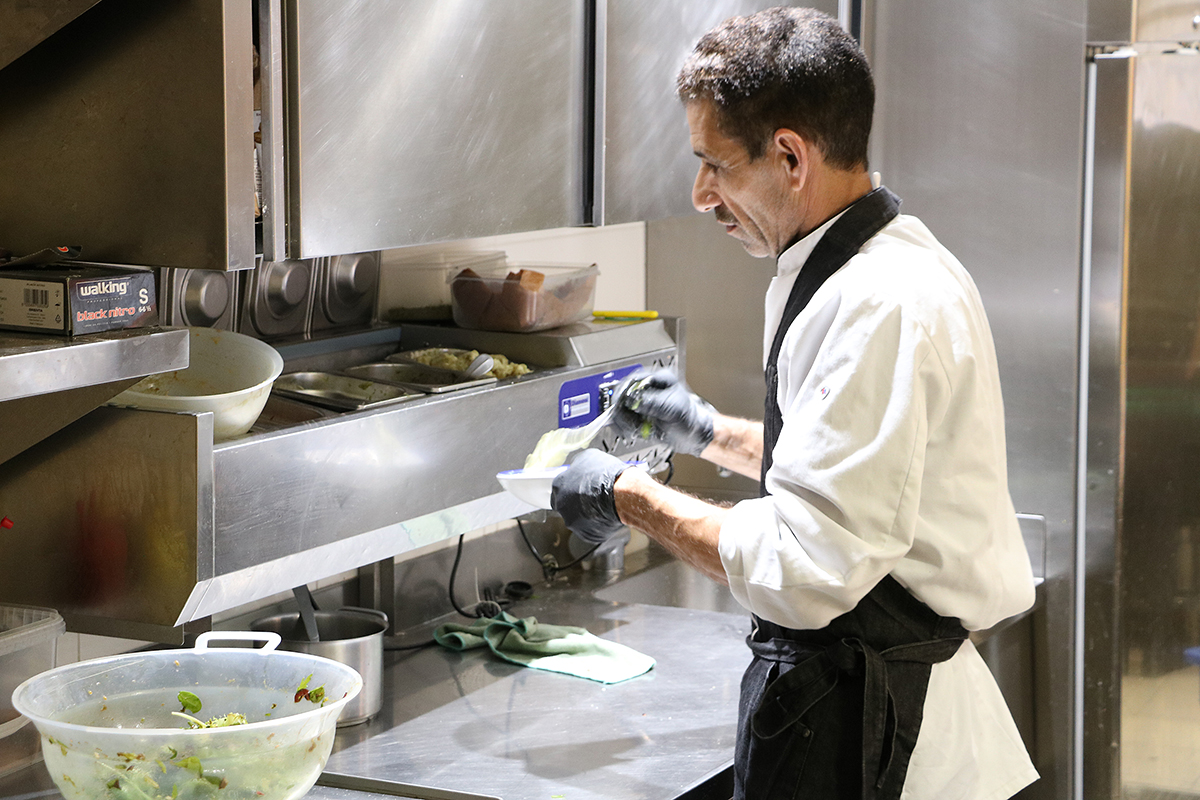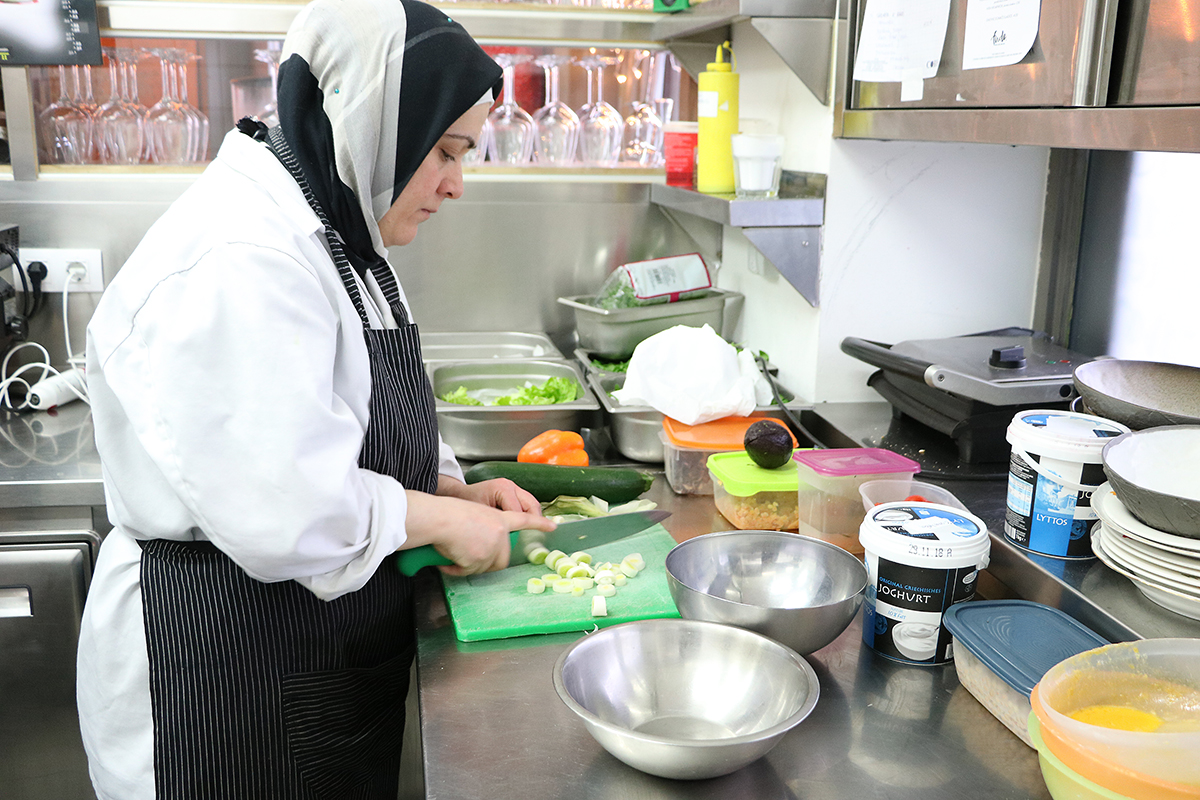Slovenian project cooks up jobs for refugee chefs
Preparing dishes in Maribor’s top restaurants means a fresh start for Syrian refugees
Syrian refugee Sajir Hussein at work in Gostlina Maribor, one of the top restaurants of the town © UNHCR/Zsolt Balla
When Sajir Hussein ran his own business in his hometown of Deir ez-Zor in eastern Syria, providing for his eight children seemed easy. But everything changed when he lost both his home and his job to war. Now, at 48, he cooks in one of the top restaurants on the main square of Maribor, Slovenia. His employment has allowed him to re-establish a normal life for his family after all their hardships.
“We had some reservations when we first heard a Syrian refugee was going to work here, but now we are very happy to have Sajir on the team”
“I really love working here, they treat me like a friend,” he says. „Being able to work means everything to me. A man without a job is like a dull object. I work for the sake of my children, and I don’t have financial difficulties.”
Sajir works six-hour evening shifts, which are especially busy in the popular restaurant. His job is challenging, but he enjoys full support from his boss and colleagues.
„We had some reservations when we first heard a Syrian refugee was going to work here with us, but now we are very happy to have Sajir on the team,” one waiter says enthusiastically, before rushing off to serve a freshly prepared dish.
„Sajir always had it in him. His confidence was obvious at first sight,” says Dominik Raduha, project officer at Project ESIRAS of the Slovenian Red Cross.
„People come to us because they want to be integrated in the job market,” he explains. „Basically, whatever they need, as long as they want to find a job, we support them one hundred percent. With employment, refugees become a lot more self-reliant. Their social skills improve, their confidence improves, their lives improve.”
„In five years, I see myself cooking in my own restaurant in Slovenia. It will be an Arabic restaurant. I am the queen of Arabic cuisine, nobody can beat me at that.”
The project’s main goal is to find employment opportunities for refugees living in Slovenia.
In some cases it means finding job openings; in others it means accompanying a refugee to a job interview, or even for a first day to a new workplace. ESIRAS project, implemented in collaboration with Public Employment Service, also follows up with the companies to prevent potential problems coming from intercultural differences.
Syrian refugee Manar Meknas, 44, also found her job with the help of ESIRAS. She and her family left Syria several years ago, eventually settling in Slovenia. Now she works literally next door to Sajir, in another top notch restaurant on Maribor’s main square.
„Working in a restaurant is a completely new experience for me. Sometimes I have difficulties with language and other things, but I’ll get used to it, and hopefully everything will be fine,” Manar says.
In Syria she was a housewife, staying at home with her four kids, but things are different now. Two of her kids are already working, while the other two are still in school. „Now I have the time and the opportunity, so I could start working. My first ever work experience is here in Slovenia.”
Manar may be new to the labor market but when it comes to cooking, she has all the experience she needs, although she is always open to learn more. „I meet new people and I get to know new things. This is great,” she says.
One of the biggest challenges Manar currently faces is that of her language skills. She speaks basic Slovenian but she knows that for longer term success she will have to become fluent.
„In five years, I see myself cooking in my own restaurant in Slovenia. It will be an Arabic restaurant. I am the queen of Arabic cuisine, nobody can beat me at that.”
ESIRAS is funded by the European Union’s Program for Employment and Social Innovation (EaSI), and is implemented across seven EU member states.



